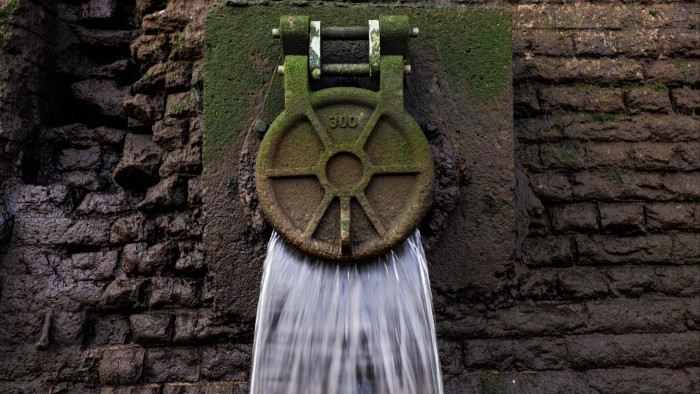Stay informed with free updates
Simply sign up to the Utilities myFT Digest — delivered directly to your inbox.
Britain’s privatised water companies tipped sewage into rivers and coastal waters for a record 3.6mn hours last year despite a groundswell of protests and pledges to increase investment, according to official data.
Although the duration of spills increased, the number of outflows fell slightly compared with 2023, the Environment Agency said in its annual report on sewage outflows in England on Thursday.
It said the increase in sewage outflows was due to a lack of capacity in the pipes that carry effluent to sewage treatment plants, as well as overstretched treatment plants and heavy rain last year.
Steve Reed, environment secretary, condemned the figures as “disgraceful” and “a stark reminder of how years of under-investment have led to water companies discharging unacceptable levels of sewage into our rivers, lakes and seas”.
Anglian Water was responsible for the biggest increase, discharging 448,938 hours of raw sewage, in a 64 per cent increase on 2023. Thames Water increased raw sewage discharges by more than 50 per cent, to almost 300,000 hours. One of South West Water’s overflow pipes spilled for a full 366 days without stopping, or 8,772 hours.
The full extent of sewage pollution is unknown as the monitors record the frequency and duration of outflows but not the volume and the data is self-reported by the water companies.
An additional 11,000 emergency overflow pipes that tip sewage into rivers and coastal waters are due to have monitors installed by 2030.
The government has commissioned a review into the water sector led by Sir John Cunliffe, former deputy governor of the Bank of England, which is due to report by summer.
Three of the water regulators, the Department for Environment Food and Rural Affairs, the Environment Agency and Ofwat, also face their own investigation by the Office for Environmental Protection, which was set up in the wake of Britain’s decision to leave the EU.
The OEP has already found that the three regulators failed to comply with environmental laws that required regulation of the network of combined sewer overflows, which take a mix of effluent and storm water into rivers and coastal waters.
The body is investigating whether the regulators breached the Water Framework Directive Regulations, one of the key laws in place to protect and improve water quality.
Justin Neal, solicitor at campaign group Wildfish, which brought the case to the OEP, said that if the regulators had enforced the law, “the rivers wouldn’t be as full of sewage as they are today”.
The campaign group has called on the government to introduce continuous volumetric monitors, which would allow the public to access sewage data in real time, as well as an end to operator self-monitoring.
The industry has pledged to invest £12bn towards cutting spills from storm overflows as part of £106bn of funding for the water companies by 2030.
The improvements, which include a pledge to reduce sewage pollution by 45 per cent by 2030 from 2021 levels, will be paid for by the biggest annual increase in consumer charges since utilities were privatised 36 years ago.
Household bills are expected to rise by 26 per cent to £603 from April and further increases expected by 2030.
The investment comes against a background of widespread protests across the country last summer and a growing campaign for non-payment of water bills.
The 11 water and sewage companies have accrued £74bn in debt over the past 34 years and paid out £83bn in dividends after being privatised with no debt in 1989, according to research by the Financial Times.
Water UK, which represents the industry, said: “While these results are disappointing, we are starting to see the effect of investment with many companies reducing the number of spills in their area, despite 2024 being one of the wettest years on record.”
Read the full article here

